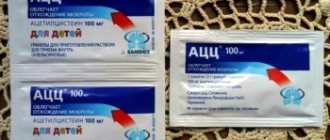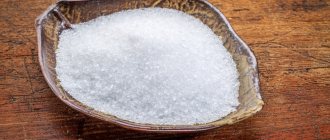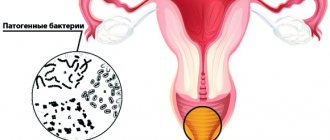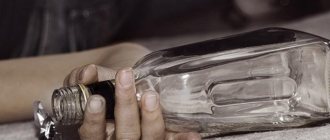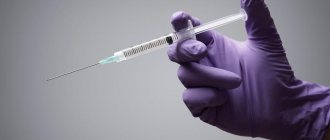Like all medications, Phosphogliv has side effects , but they are usually not very pronounced and can be easily eliminated by adjusting the dose or discontinuing the drug.
This article describes what side effects and contraindications Phosphogliv has. Since the list is not wide, we will dwell on each point in detail and tell who and why should not take Phosphogliv, as well as what happens if the dosage of the drug is exceeded.
How does Phosphogliv work?
Phosphogliv is considered the only drug in the country that is capable of restoring and treating one of the most important human organs - the liver.
The drug can be taken not only for existing liver diseases, but also for preventive purposes. The liver is regularly subjected to heavy loads: unhealthy food, alcoholic drinks, stressful situations, lack of an active lifestyle. All this together affects the functioning of the human body.
When taking the medicine orally, it is well absorbed in the intestines. The maximum content of the active substance in the blood plasma occurs after 8-22 hours. Excreted in urine and bile.
When administered intravenously, the drug immediately appears in the blood, and the maximum concentration occurs much faster. It is also excreted in urine and bile.
Analogs
Essentiale Forte N
Essentiale Forte N is a hepatoprotector from the EPL group. The medication is available in the form of capsules for oral administration. The hepatoprotector is produced in Germany and France. The average price of a package is 800 rubles.
The active component is a mixture of essential phospholipids. They are a structural analogue of hepatocytes and their organelles. Essentiale Forte N improves the functionality of liver cell membranes, prevents the development of fibrosis, normalizes lipid and protein metabolism, and has anti-inflammatory and antioxidant effects. Phospholipids are absorbed primarily in the small intestine. Under the influence of phospholipase-A, the main part of EPL is cleaved to 1-acyl-lysophosphatidylcholine.
Indications for use of Essentiale Forte N:
- Chronic hepatitis. The medicine is used if the disease is the result of the penetration of viral agents, prolonged use of alcoholic beverages, or use of hepatotoxic drugs.
- Cirrhosis of the liver.
- Liver failure.
- Fatty liver degeneration.
- Intoxication.
- Toxic liver damage.
- Gestosis in pregnant women.
- Radiation sickness.
- Psoriasis, neurodermatitis, eczema.
Essentiale Forte N should be taken before or after meals. The instructions say to take 2 capsules 3 times a day. The duration of the treatment course is 1-3 months; in advanced cases, the hepatoprotector is taken for six months.
Essentiale Forte N is contraindicated in case of hypersensitivity to its components and the presence of antiphospholipid syndrome. Also, capsules are not prescribed to children under 12 years of age. During pregnancy and lactation, you can take a hepatoprotector with the permission of your doctor.
Side effects:
- Hives.
- Itching.
- Rash.
- Exanthema.
- Diarrhea, constipation, abdominal pain.
special instructions
The shelf life of capsules is 36 months, ampoules – 24 months from the date of production.
The drug should be kept in a dry place, out of reach of children and away from sunlight. The temperature should not exceed 20 degrees.
People with arterial or portal hypertension should take it with special caution. If your blood pressure increases after using the medicine, you should immediately stop treatment and inform your doctor.
The product in the form of an injection solution is strictly prohibited from being combined with other drugs for intravenous administration.
Contraindications and side effects
Phosphogliv is contraindicated in case of hypersensitivity to its active or auxiliary components. The drug, available in capsule form, is also not prescribed to children under the age of 12 years.
The list of strict contraindications includes decompensated arterial hypertension, antiphospholipid syndrome, lactation and pregnancy. During treatment, it is strictly forbidden to drink alcoholic beverages, as ethanol reduces the effectiveness of therapy.
Please note that Phosphogliv lyophilisate is strictly prohibited from being mixed with other solutions for intravenous administration, including glucose solution and isotonics. If blood pressure increases after starting to take capsules or injections, then therapy should be interrupted.
Side effects:
- Allergic reactions - itching, burning, skin rash, urticaria, Quincke's edema. In case of overdose/antiphospholipid syndrome, even anaphylactic reactions are possible.
- Digestive disorders. At the initial stages of therapy, approximately 2% of patients experienced dyspeptic disorders (nausea, diarrhea, constipation, flatulence), bitterness in the mouth, discomfort in the right hypochondrium, and abdominal pain. Bloating is possible.
- The appearance of peripheral edema.
- Increased blood pressure. If the patient has decompensated hypertension, a hypertensive crisis may develop.
An overdose is dangerous, because glycyrrhizic acid can have a so-called “pseudocorticosteroid” effect. This means that the body can sharply increase the content of glucocorticoids and mineralocorticoids in the blood, as a result of which sodium retention occurs, the amount of potassium decreases, blood pressure increases, fluid retention and swelling are observed.
Reviews
Patients who have already used the medicine leave positive reviews and confirm its effectiveness. After taking it, the condition of the liver noticeably improves, and troubling problems disappear. The drug allows you to eliminate the signs of the disease, and your overall health and test results noticeably improve. The same reviews are left by patients with more severe pathologies, such as hepatitis C. After use, there is also a noticeable improvement in the condition of the skin.
Another undeniable advantage is the reasonable price.
Doctors also speak positively about the drug. They prescribe it for the treatment of liver diseases of various origins.
Manufacturer
The country of origin of the medicine is Russia. All forms of the drug are produced at the facilities of the largest pharmaceutical company in the Russian Federation, Pharmstandard. The corporation was founded in 2003, and over the next few years it bought out several factories across the country. Later, the company acquired shares in enterprises producing medicines and medical devices in Ukraine.
Currently, the range of drugs produced includes both generics (in particular, the well-known Allohol) and original medicines (for example, the first Russian growth hormone under the trade name Rastan, Diaskin test for detecting tuberculosis). In August 2021, an agreement was reached with the American corporation Gilead Sciences to authorize the production of Sovaldi (sofosbuvir) and Truvada (an antiretroviral drug for the treatment of HIV).
Healthy lifestyle
A healthy lifestyle is important for every person. It's never too late to change your perspective on certain lifestyle issues. When treating diseases of the liver tissue, you should adhere to the following principles of a healthy lifestyle:
- Regular and balanced nutrition.
- Rational organization of sleep and rest.
- Complete cessation of smoking, alcohol and drug use.
- Protected sexual intercourse.
- Active lifestyle: walks, physical exercise, walking.
- Take any medications only after consulting a doctor.
Use for prevention
In conditions of unfavorable environmental conditions and unbalanced nutrition, the body's cells are quickly depleted and cease to perform their functions. Phosphogliv restores the protective membrane of cells, preventing their damage and death.
Taking the hepatoprotector Phosphogliv prevents the occurrence of steatohepatitis, fibrosis, and even such a dangerous disease as cirrhosis. Phosphogliv stimulates fat and protein metabolism.
In addition to taking Phosphogliv, the prevention of liver diseases includes the following measures:
- refusal of alcohol or alcohol abuse;
- compliance with established rules for working with toxic substances;
- compliance with approved hazardous production technologies;
- taking medications only under the supervision of a doctor;
- healthy balanced diet;
- exclusion of casual unprotected sexual contacts;
- Call your doctor immediately if you have symptoms that indicate liver problems;
- treatment of diseases that can lead to liver dysfunction.
The liver not only performs detoxification functions, but also affects digestion. It synthesizes bile, hormones and enzymes that ensure the digestion of food in the duodenum and other parts of the small intestine. It also provides the body with glucose, thereby replenishing its energy needs. The use of Phosphogliv improves metabolism. This is especially important for people with obesity and slow metabolism.
Clinical trial results
Clinical studies regarding the effectiveness of Phosphogliv were conducted at Russian hospitals and research institutes. A positive effect on the main markers of metabolic processes and a positive trend in improving the results of liver tests has been proven.
In 80% of patients with acute hepatitis C, a significant decrease in viremia was noted before the start of antiviral treatment. The effect of taking it was absent in 0.3% of patients, and was weakly expressed in 0.8%.
Separately, it was studied whether Phosphogliv increases blood pressure and the frequency of other adverse reactions. Adverse events were detected in 9% of patients. Data have been published regarding the positive effect on the dynamics of the spread of tumors of the skin and mammary glands in rodents. Research in this direction continues.
Indications
"Phosphogliv" is intended for oral use; the main indications for prescribing the drug are:
- Liver steatosis.
- Damages of an organ that are accompanied by functional disorders in its work.
- Viral hepatitis.
- Cirrhosis of the liver.
- Psoriasis.
The medication shows increased effectiveness as a therapeutic and prophylactic drug for restoring liver function after prolonged therapy with antimicrobial or any other drugs.
Use of the drug during pregnancy and breastfeeding
There is no or limited experience with the use of Phosphogliv among pregnant women. No studies have been conducted regarding the safety of the drug for the fetus, so the capsules are not recommended for women during pregnancy.
It is not known whether the drug Phosphogliv is excreted in breast milk and how this may affect the baby's body. Given the lack of information about the safety of the drug, it is not recommended for women to take Phosphogliv capsules orally during breastfeeding. If drug therapy is necessary, the issue of stopping lactation and transferring the child to artificial nutrition should be decided.
Therapeutic effect
As already noted, the drug has a complex effect:
- Stabilizes cellular and intracellular membranes. If damaged, restores their structure and protects.
- Is a hepatoprotector. Normalizes protein-lipid metabolism. Restores liver function by inhibiting the proliferation of connective tissue. Protects cells from loss of enzymes, reduces the risk of developing liver fibrosis and cirrhosis.
- Destroys viruses in the liver. The medicine has an anti-inflammatory effect, stimulating the production of interferons, phagocytes and increasing their activity.
- Reduces allergic processes in non-infectious liver lesions.
- The combined effect is a distinctive feature of Phosphogliv from drugs with similar effects.
Interaction with alcohol
Often, liver diseases occur as a result of drinking excessive amounts of alcohol, which has a negative effect on liver cells, increasing inflammatory and degenerative processes in them. The drug "Phosphogliv" is designed to normalize the functioning of the liver and restore the integrity of its cells. In this regard, it is obvious that the use of alcohol-containing drinks in parallel with Phosphogliv is strictly contraindicated.
An overdose or intolerance to Phosphogliv can cause swelling, hypertension, diarrhea, and vomiting.
Traditional ways
Some patients do not seek to see a doctor if they have complaints, but try to treat themselves, even without knowing the exact diagnosis. Many begin their treatment with the use of traditional medicine methods. The most common folk remedies in the fight against liver diseases are: honey, olive oil, chicory, milk thistle, radish, licorice, hawthorn fruits, peppermint leaves and many other medicinal plants.
Doctors do not recommend using folk remedies to treat liver diseases on your own. First, you first need to make a diagnosis. Secondly, do not neglect prescribed medications. Thirdly, even traditional methods of treatment must be agreed upon with a doctor. It is important not only not to cause harm, but also not to waste valuable time that can be spent on treating an existing disease using traditional methods.

